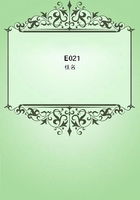
第39章
If, however, from too much conversing with material objects, the soul was gross, and misplaced its satisfaction in the body, it reaped nothing but sorrow; body being unable to fulfil the promise which beauty holds out; but if, accepting the hint of these visions and suggestions which beauty makes to his mind, the soul passes through the body, and falls to admire strokes of character, and the lovers contemplate one another in their discourses and their actions, then they pass to the true palace of beauty, more and more inflame their love of it, and by this love extinguishing the base affection, as the sun puts out the fire by shining on the hearth, they become pure and hallowed. By conversation with that which is in itself excellent, magnanimous, lowly, and just, the lover comes to a warmer love of these nobilities, and a quicker apprehension of them. Then he passes from loving them in one to loving them in all, and so is the one beautiful soul only the door through which he enters to the society of all true and pure souls. In the particular society of his mate, he attains a clearer sight of any spot, any taint, which her beauty has contracted from this world, and is able to point it out, and this with mutual joy that they are now able, without offence, to indicate blemishes and hindrances in each other, and give to each all help and comfort in curing the same. And, beholding in many souls the traits of the divine beauty, and separating in each soul that which is divine from the taint which it has contracted in the world, the lover ascends to the highest beauty, to the love and knowledge of the Divinity, by steps on this ladder of created souls.
Somewhat like this have the truly wise told us of love in all ages. The doctrine is not old, nor is it new. If Plato, Plutarch, and Apuleius taught it, so have Petrarch, Angelo, and Milton. It awaits a truer unfolding in opposition and rebuke to that subterranean prudence which presides at marriages with words that take hold of the upper world, whilst one eye is prowling in the cellar, so that its gravest discourse has a savor of hams and powdering-tubs. Worst, when this sensualism intrudes into the education of young women, and withers the hope and affection of human nature, by teaching that marriage signifies nothing but a housewife's thrift, and that woman's life has no other aim.
But this dream of love, though beautiful, is only one scene in our play. In the procession of the soul from within outward, it enlarges its circles ever, like the pebble thrown into the pond, or the light proceeding from an orb. The rays of the soul alight first on things nearest, on every utensil and toy, on nurses and domestics, on the house, and yard, and passengers, on the circle of household acquaintance, on politics, and geography, and history. But things are ever grouping themselves according to higher or more interior laws. Neighbourhood, size, numbers, habits, persons, lose by degrees their power over us. Cause and effect, real affinities, the longing for harmony between the soul and the circumstance, the progressive, idealizing instinct, predominate later, and the step backward from the higher to the lower relations is impossible. Thus even love, which is the deification of persons, must become more impersonal every day. Of this at first it gives no hint. Little think the youth and maiden who are glancing at each other across crowded rooms, with eyes so full of mutual intelligence, of the precious fruit long hereafter to proceed from this new, quite external stimulus. The work of vegetation begins first in the irritability of the bark and leaf-buds. From exchanging glances, they advance to acts of courtesy, of gallantry, then to fiery passion, to plighting troth, and marriage. Passion beholds its object as a perfect unit. The soul is wholly embodied, and the body is wholly ensouled.
"Her pure and eloquent blood Spoke in her cheeks, and so distinctly wrought, That one might almost say her body thought."